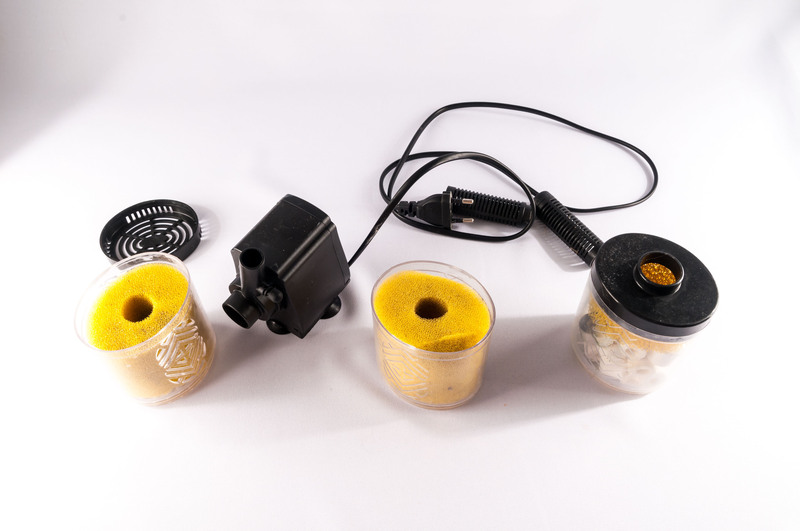Make Sure Your Freezer Stays Safe While in Storage: Ultimate Guide
Whether you're moving, renovating, or simply storing an extra appliance, ensuring the safety of your freezer in storage is essential. Neglecting best practices can lead to unpleasant odors, mold growth, and permanent damage, shortening your freezer's lifespan. In this comprehensive guide, you'll discover effective tips and insights on how to keep your freezer safe during storage--from preparing and cleaning it, to choosing the best storage environment, and periodic checks. Let's make sure your freezer storage experience is hassle-free and your appliance stays in top-notch condition!
Why Is Proper Freezer Storage Important?
Storing your freezer safely goes far beyond just unplugging it. You want your freezer to be ready for use anytime, with all its components intact and free from musty smells, mold, rust, or electrical faults. Here's why safe freezer storage matters:
- Preserves Appliance Lifespan: Careful storage minimizes wear and tear, avoiding costly repairs or the need for a replacement.
- Prevents Mold and Bacteria Growth: Freezers left unopened but uncleaned are prone to microbial growth, especially if moisture is left inside.
- Avoids Unpleasant Odors: Food residue and stagnant air can cause difficult-to-remove smells.
- Prevents Damage from Environmental Factors: Humidity, extreme temperatures, pests, or impacts in storage can diminish freezer performance or render it useless.
By following the advice below, you'll ensure that your freezer remains safe, clean, and functional no matter how long it stays in storage.

Essential Steps to Safely Store Your Freezer
1. Deep Clean Your Freezer
Before storing, an intense cleaning routine is crucial. Here's how to do it right:
- Unplug and Defrost: Remove all contents from the freezer. Unplug it and leave the door open to allow it to fully defrost. This can take a few hours or overnight for larger units.
- Remove Shelves and Drawers: Take out all removable parts for easier cleaning and drying.
- Clean Thoroughly: Use a mixture of baking soda and warm water (avoid harsh chemicals) to wipe down all surfaces, crevices, shelves, and drawers. Pay special attention to door seals and hard-to-reach corners.
- Dry Completely: Air-dry the freezer and all removed parts. Any lingering moisture is a potential breeding ground for mold.
2. Inspect and Repair Any Damage
Storing a damaged freezer can make existing problems much worse. Conduct an inspection of:
- Door seals and gaskets (for splits or brittleness)
- Interior and exterior surfaces (for rust or dents)
- Cord and plug (for fraying or exposed wires)
If you find any issues, repair them first--safe freezer storage begins with a freezer in good condition.
3. Secure and Wrap the Freezer
To protect your freezer during storage, follow these wrapping tips:
- Use moving blankets or bubble wrap to prevent dents and scratches.
- Tape the power cord securely to the back.
- Keep the door slightly ajar (use a rolled-up towel or wedge) to allow air circulation--this reduces the risk of mold and mildew significantly.
- Never use plastic wrap or airtight covers, as these trap condensation inside.
Best Places to Store Your Freezer
Choosing a suitable location is one of the most impactful decisions you'll make when it comes to freezer storage safety. Here are your top options:
Home Garage or Basement
- Garages can be ideal, provided they're dry and relatively temperature-controlled. Avoid garages prone to flooding or extreme temperatures.
- Basements often offer consistent temperatures and protection from the elements, but check for humidity issues or leaks first.
Self-Storage Facility
- Choose climate-controlled units to avoid wild temperature swings and humidity.
- Check facility policies on appliance storage--some have specific requirements or bans.
- Place the freezer on a pallet to keep it off the ground, protecting it in case of floor moisture or spills.
Outdoor Sheds or Storage Rooms
- If using an outdoor shed, ensure it's waterproof, rodent-free, and well-ventilated.
- Temperature extremes and humidity are the biggest risks here--insulation can help but is no substitute for indoor storage quality.
Tips for Long-Term Freezer Storage
Planning to store your freezer for several months or more? These additional precautions will make sure your freezer remains safe and functional:
- Leave the Door Open: A slightly ajar door allows air to circulate, deterring mold, mildew, and musty smells. Use a purpose-made wedge or block to keep the door from closing accidentally.
- Check Periodically: Every few weeks, inspect the freezer for signs of pests, leaks, rust, or mildew. Quickly address any issues to prevent long-term damage.
- Avoid Humid Environments: Moist storage promotes rust and mold. Consider using desiccant packs or a dehumidifier in particularly humid areas.
- Store Upright: Always stand your freezer upright. Laying it sideways can disrupt the compressor oil and components, possibly damaging them.
- Don't Store Items on Top: Heavy or sharp items stored on the freezer can dent the lid, damage hinges, or affect door sealing.
Common Mistakes to Avoid When Storing a Freezer
Many people inadvertently reduce the lifespan of their freezer by overlooking basic storage guidelines. Avoid these typical errors:
- Storing a Freezer Full of Food: Never store a freezer with any food inside--even unopened, packaged goods can spoil and explode, causing mess and odors.
- Forgetting to Defrost: Ice inside a non-defrosted freezer eventually melts, causing leaks, puddles, and potential electrical damage.
- Sealing the Appliance Completely: Wrapping your freezer in airtight plastic or shrink wrap traps moisture, promoting mold and corrosion.
- Neglecting the Power Cord: Tangled or trailing cords can get caught or fray. Always secure the cord before placing the appliance in storage.
- Choosing a Damp or Flood-Prone Area: Water is the enemy of appliance longevity. Always check for dry, safe conditions before moving your freezer into storage.
How to Prepare Your Freezer for Use After Storage
When it's finally time to use your freezer again, follow these steps for a safe restart:
- Inspect Carefully: Check seals, wiring, and the area for any signs of rodent or insect activity, moisture, or rust.
- Wipe Down and Air Out: Give your freezer a quick wipe with a baking soda solution. Let it air out for a few hours to eliminate any lingering odors or dust.
- Plug In Upright: Never turn on a freezer that's been stored on its side. If this happened accidentally, let it stand upright for at least 24 hours before plugging in to allow compressor oil to settle.
- Monitor First Cool-Down: Once plugged in, monitor the first few hours of operation for odd noises, leaks, or electrical issues.
- Load in Stages: Don't immediately fill the freezer with large amounts of frozen food. Allow it to cool completely and gradually add your items back in.
Extra Tips to Ensure Freezer Safety During Storage
- Label Your Appliance: Attach a note stating the storage and cleaning date and any important reminders (like "door open for air circulation").
- Protect Against Pests: Use pest deterrents (like cedar blocks or sachets) if you're storing in a garage, shed, or warehouse.
- Use Baking Soda for Odor Control: Place an open box of baking soda inside the freezer cavity before closing it up. This helps keep your freezer smelling fresh!
- Take Photos: Before storage, photograph your appliance inside and out--especially if kept in a public storage facility.

FAQs: Freezer Storage Safety
How long can I store a freezer safely?
With proper preparation, a freezer can be stored safely for many years--especially in a climate-controlled environment. However, regular checks every few months are still recommended.
Should I cover my freezer in storage?
Yes, but never with plastic wrap or airtight material. Use a breathable cover, such as a moving blanket, to shield against dust and minor bumps but still let air circulate.
Is it safe to store a freezer on its side?
It's not recommended. Storing a freezer upright protects the delicate compressor parts and keeps the coolant in place.
Can I store my freezer outside?
Outdoor storage is not ideal unless the shed or enclosure is entirely weatherproof and well-ventilated. Freezers are best stored indoors in a dry, temperature-moderated space.
What to do if my freezer smells after storage?
Clean thoroughly with baking soda and vinegar solutions, then allow the freezer to air out with the door open. If the odor persists, consider using odor-absorbing charcoal or specialized appliance deodorizers.
Conclusion: Make Sure Your Freezer Stays Safe While in Storage!
Your freezer is a valuable home appliance, and ensuring its safety during storage is a smart way to protect your investment. By deep-cleaning, securing, and storing your freezer properly--and selecting the most suitable location--you can prevent mold, pests, rust, and damage. Remember to leave the door ajar, check periodically, and avoid storing in humid or unsafe environments.
Follow these strategies, and your freezer will be ready when you need it, saving you money and hassle. Whether short-term or long-term, make freezer storage safety a priority!
If you found this guide helpful, bookmark it for future reference and share it with friends or family who might need to store a freezer safely soon!



